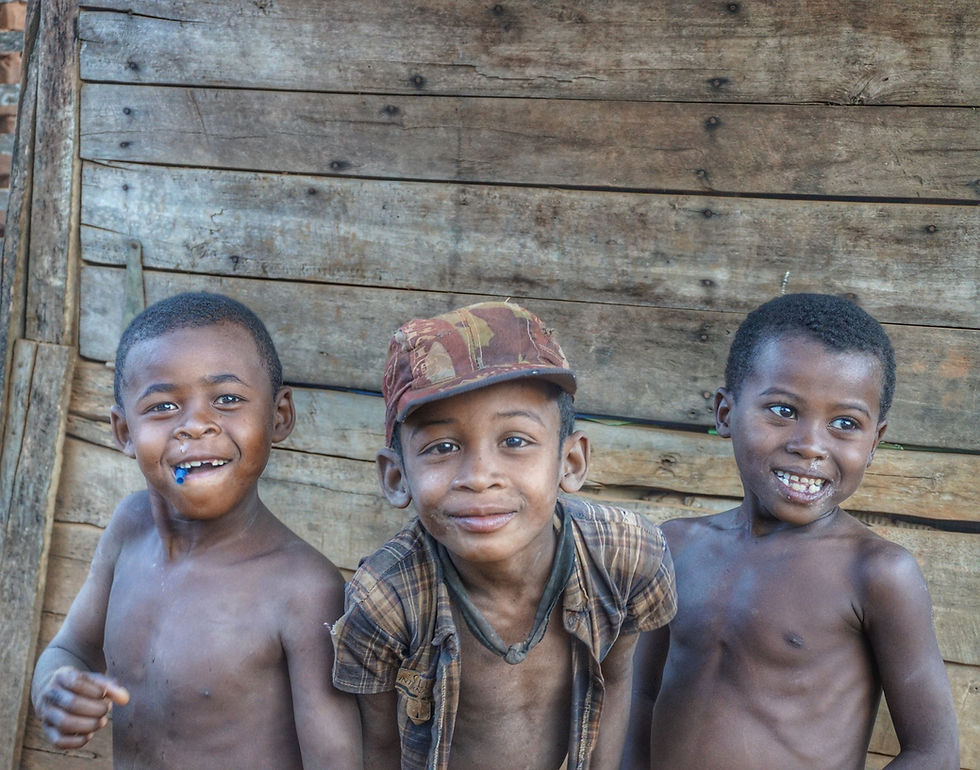Madagascar, FAQs answered by a Malagasy person. Series #1.
- Tsiky and Jan

- Nov 4, 2018
- 4 min read
Updated: Feb 10, 2024
If you have any questions, you can comment on this post, or send them to me on Facebook or Instagram.
Q: Do you speak French?
A: Yes, I do. French is the second official language in Madagascar because Madagascar was colonised by France from 1896 until 1960. We study French from primary school, and in most schools, the notes are given in French even though teachers are explaining everything in Malagasy (our native language).
Q: What are the dreams of the teenagers in Madagascar? What were your dreams? Do they put more value on family or career?
A: Like many young people around the world, we dream of opportunities and exploring the world.
Q: What are their worries?
A: Young people do not have so much to look forward to in Madagascar. There are many young people without a job, with or without diploma, which does not encourage people to go to school.
Q: What are Madagascar’s biggest problems? (social, economic, political situation etc...)
A: lack of access to education:46% of the Malagasy population can not read or write, lack of infrastructure, corruption
There have been many political crises that made the country highly unstable, every time we change president, there is a political crisis. Therefore there is no continuity in governance. We say that Madagascar is a democratic country but I would say that most of the Malagasy population do not understand what is democracy.
Madagascar is highly dependent on foreign aid. No-one has ever wondered how we are paying back the debt.
Malagasy are poorly educated about Madagascar and about the rest of the world. Therefore, they do not see how to make the best of their situation. This leads to a huge lack of entrepreneurship, hence the employment shortage.
The gap between rich and poor people increases tremendously through the political crises, and insecurity is rising.
Q: What do young people hope for their country? What do you hope will get better in Madagascar?
A: Young people hope for jobs and opportunities. It is very frustrating to have studied for many years and not being able to find a job.
I hope that Madagascar gets better leaders who loves the country and will able to make true positive changes: reduce corruption, educate the population, build infrastructure.
Q: How are the people in Madagascar? (To help you a little bit with your answer: I‘m originally from Brazil. People in Brazil are very open but also very biased. Racism is a very big problem there. But, almost every Brazilian is very patriotic..)
A: Malagasy people are very welcoming. I believe anyone that has visited Madagascar has felt it.
There are 18 tribes in Madagascar. Malagasy are generally not racist but some tribes still do not marry each other. This depends on the family.
Q: How do people in Madagascar live? (in houses, is the lifestyle simple?, with their extended family or in small numbers...)
A: People live in houses. The type of house depends on the region. In the highlands, the houses are made of bricks, because it is cold during the dry season, while in the coast, houses are made of palm trees and leaves or other types of light wood.
Families live together until the children can afford to be on their own (which might not happen).
Q: How is the school system? Do a lot of students go to a University? Is it a good school system? Is the number of unemployment high? Is it difficult to find a job?
A: We follow the French school system. Not many of the children that go to school make it to university.
Q: What are the most famous traditions in your country? (food, music, festivals...)
A: Every tribe has its own tradition. For example in Merina tribe, one of the most famous traditions we have is the exhumation (we call it famadihana). This is a family tradition to express gratitude and to honor members of the family that are already passed away. We take their body out of the family tomb and cover it with more Malagasy handmade silk. This celebration lasts for 2-3 days, and the extended family gather to dance and eat together.
Q: What is the women‘s status in Madagascar?
A: Many women work. Some women are home carer.
Q: Do young people want to stay in their country? Or is it likely for them to leave it, like you did? :-)
A: Many young people would like to move out the country because of the lack of opportunity.
Q: What is the main religion there? Are many people religious?
A: People in big cities are generally Christian, but the ones that live in the villages are following the traditional religion. Overall, 55% of the population are following traditional beliefs, 40% are Christian, and 5% are Muslim.
Q: What is the relation between Madagascar and France?
A: Economically, Madagascar exports to France and imports from France. France is the second largest trade and business provider for Madagascar. I would say the majority of foreigners living in Madagascar are French, and the majority of Malagasy people abroad are in France.

--
Itsikiantsoa (Tsiky) Randrianantenaina





Comments